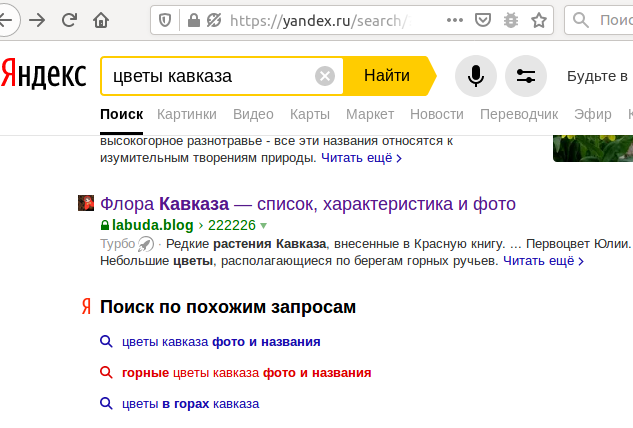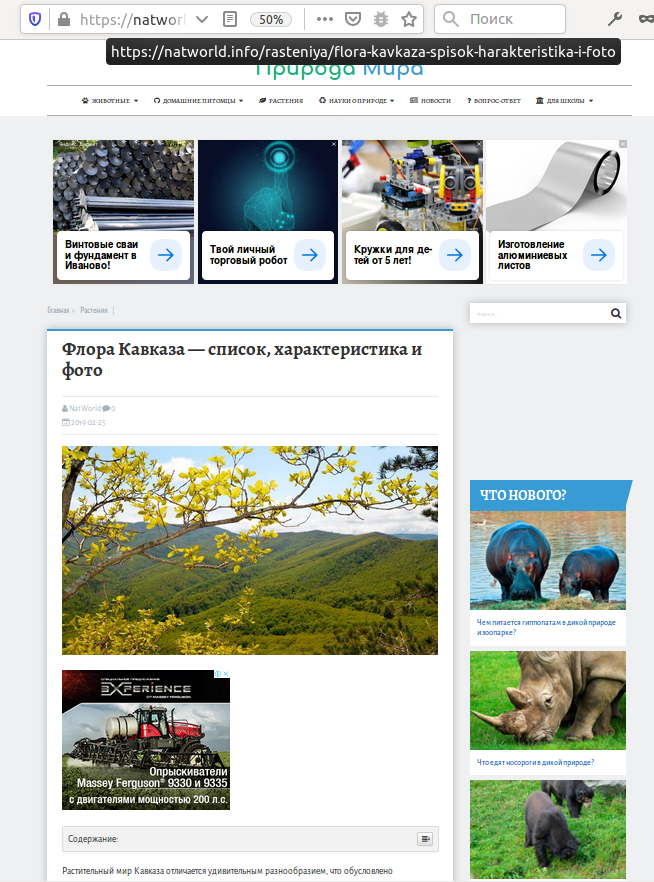What are Yandex Turbo pages officially?
Turbo pages - light version pages of your siteIn principle, everything is clearly described, for what it is needed. And although you understand that technology is tied to Yandex, oh well. Moreover, if this increases user convenience and thereby increases user traffic, then why not?
Studies show that people are not ready to wait for a download for more than 2 seconds.
We suggest you connect Turbo pages that open very quickly from Yandex services and are effectively monetized.
But as always, there is a nuance.

Technical details
Links to habro articles with a detailed description of the technology:
- Under the Hood Turbo Pages: Architecture of Webpage Fast Download Technology
- Technologies Yandex Turbo Pages and Google AMP for e-commerce
- Updating the contextual advertising approach: Yandex.Direct turbo pages
Briefly, the technology allows increasing the speed of downloading web pages to mobile devices of a user due to their preliminary processing and caching on separate servers.
There is nothing complicated in the page settings either (at least for the developer). I set up their generation on my site at the end of last year, and judging by the reports, it turned out several hundred Turbo pages, so the flight is normal.
Page Comparison
And
Screenshots of search results: 



What was my surprise when it became clear that I did not go to the target site, but continued to remain on Yandex! Links in the search results are displayed as usual, but a URL opens that starts at _https: //yandex.ru/turbo? Text = [URL] ...

Once again, I focus on the fact that this search results on a regular desktop computer, and not on a mobile phone, for the sake of increasing the speed of loading pages on which everything started!
And only after reading the technical details about this technology did it reach me! The articles do not particularly focus on the fact that when a Turbo page is opened, the user does not go to the target site, but continues to remain on the search engine server all the time!
Subtleties of user agreement
And what is written in the user agreement? You can not pay attention to details in which the company is not responsible for anything. Such reservations are common with such services.
But I was very interested in two points that were introduced during the last two changes to the user agreement.
Clause 2.6.3. in the version dated 12/29/2018 in which
“The user may be given the technical ability to automatically arrange Advertising as part of the User Information ...”
The whole paragraph 2.6.3.
2.6.3. In some cases, the User may be given the technical opportunity to automatically arrange Advertising as part of User Information in accordance with the following algorithm: ad units are placed in an amount not exceeding the ratio of one ad unit for every two screens (a screen means a part of User information corresponding to one scrolling of User information on the screen of the mobile device of the Internet user). The location of ad units is determined by Yandex. More detailed information on the operation of this functionality is provided to the User upon his request. In this case, the User undertakes to approve the results of the automatic placement of ad units as part of the User Information via the web interface provided to the User, or to send objections to Yandex regarding the results of the automatic placement of ad units. The User also confirms with respect to the use of the functionality described in this clause all warranties and liability provided for by these Terms, including, but not limited to, clause 2.5.
In other words, advertising may be embedded in the user’s page at the discretion of Yandex. Crawled into the source code of one of the pages, oh for sure! In the original, AdWords is installed on the site, and advertisements from Yandex are broadcast on Turbo pages. Although, maybe I'm pumping up in vain here and the advertising system was replaced in the template of Turbo pages by the site owner himself or he agreed on a similar replacement, because Is there any checkmark about advertising in the settings?
But that's not all. In the changes of 07/19/2019, a new item appeared:
"2.14. The User agrees to the transfer of User information, website data, as well as technical, statistical and analytical data, to third parties for processing on the terms and for the purposes specified in the Privacy Policy, available for review at ... "No comment.
Background
Some time ago, I shared my observations about the connection of organic traffic from Yandex search results and the presence of a paid advertising company in Y. Direct (When an advertising company in Y. Direct increases organic delivery, and the termination of an advertising company reduces organic traffic from habr.com / ru / post / 459462 ).
According to some experts, such a relationship is logical, because this is due to the behavioral factors of users on the site. In other words, the user follows the paid advertising link to the site, spends some time there and can even click on other links. Yandex sees that users on the site are interested and increase its ranking in the search results. Although the real formula for the relationship between ranking and user behavioral factors is unknown to anyone, the majority agreed that the correlation between them certainly exists.
And after all, the behavioral factors of users play a big role for ranking a site not only in Yandex, but also for all other search engines! Including through the analysis of statistics on user behavior on the site (Y. Metrika, Google Analytics, etc.). But only in the case of Turbo pages, the user does not go to the target site, but remains on the site of the search engine.
I looked at the statistics of conversions from other search engines (primarily Google) and something seems to me that there are fewer of them. But this is in no way connected with J. Turbo? I thought, thought, and turned off the Turbo pages. I'll see what changes will be with traffic after they are turned off.
Disclaimer
I have nothing to do with the sites cited in the article as an example, and I don’t have enough karma to place a link to my own in the corresponding hub.
Also, I’m not completely convinced of the negative impact of Y. Turbo on the deterioration of behavioral metrics on the site. I am not an SEO specialist and I have not set myself the task of studying specific numbers with a view to their subsequent use. But I will be grateful to all readers who will share the observations made after connecting Turbo pages in their projects!



